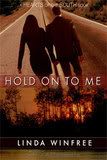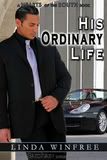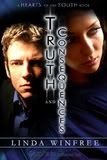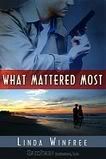Thoughts on Plot and The Dreaded Writer's Block
Two weeks ago, in my fly-by posting, I asked what topics you'd like to see here at RWKF. Paty left this in the comments section:
"How do you know you have a plot that isn't contrived or unbelievable? How do you know it is a tight plot, something that doesn't require a bunch of subplots to get the word mileage you need?"
I wish I knew. I have to admit, when I first opened the comments section and read that question, I laughed at the irony. In the past, I thought I had a handle on plot -- conflict drives the plot, and every plot point serves to either heighten or resolve conflict. Easy enough, right?
Well, if you look at my little file of rejection letters, you'll see that I'm not as knowledgeable about plot as I should be. That's pretty pathetic, if you think about it. I'm an English teacher, for gosh's sake! I talk conflict (not to mention a plethora of other literary items) daily. I've gotten a rejection based on erratic plotting and others saying that the romance overshadowed the suspense in another plot. Wondering if I really knew anything about plotting, I stopped working on the WIP from hell and stepped back.
I needed to think about plotting.
I thought and thought and thought.
Unfortunately, I became more and more confused.
So I read.
I read romantic suspense novels. I read literary novels. I read short stories.
I thought about plotting. I thought about how the authors in the works I'd read plotted.
And I watched.
Movies. Television shows.
I grew more confused. Actually, I really felt like Robert Langdon, trying to decipher a code with too many clues.
Did I know anything about plotting? What did these other authors know that I didn't?
Desperate, I turned to reading about plot. On my desk rest three books -- Strunk and White's Elements of Style, Stephen King's On Writing, and Raymond Obstfeld's Fiction First Aid. I like Obstfeld's book -- it's straighforward and he includes not only great examples, but concrete answers to a writer's often abstract issues. The first chapter is on . . . you guessed it . . . plot!
As I read, mired in my own self-doubt, I came across this quote:
"Questioning oneself is a crucial part of the writing process. Having doubt is merely the residue of that questioning process. In fact, the Picky Critic who resides in the back of your mind is a writer's best friend and should be nurtured and honed, not ignored" (Obstfeld 3).
Obstfeld goes on to say that Picky Critic tries to tell us when a plot isn't right, when it's contrived or loose or just plain wrong.
That's the little voice that won't let me move beyond chapter seven or so of the aforementioned WIP from hell. Something simply isn't right, and at this point, I can't put my finger on it yet. So the question I'm pondering now is . . . am I truly blocked or am I merely in a holding pattern while my brain sorts through all I've taken in on plotting lately?
I wish I knew the answer to Paty's questions. Somehow, I think once I get a handle on the finer art of plotting, my rejection folder might have fewer new additions.
What do you think is the most important thing to know about plotting?
"How do you know you have a plot that isn't contrived or unbelievable? How do you know it is a tight plot, something that doesn't require a bunch of subplots to get the word mileage you need?"
I wish I knew. I have to admit, when I first opened the comments section and read that question, I laughed at the irony. In the past, I thought I had a handle on plot -- conflict drives the plot, and every plot point serves to either heighten or resolve conflict. Easy enough, right?
Well, if you look at my little file of rejection letters, you'll see that I'm not as knowledgeable about plot as I should be. That's pretty pathetic, if you think about it. I'm an English teacher, for gosh's sake! I talk conflict (not to mention a plethora of other literary items) daily. I've gotten a rejection based on erratic plotting and others saying that the romance overshadowed the suspense in another plot. Wondering if I really knew anything about plotting, I stopped working on the WIP from hell and stepped back.
I needed to think about plotting.
I thought and thought and thought.
Unfortunately, I became more and more confused.
So I read.
I read romantic suspense novels. I read literary novels. I read short stories.
I thought about plotting. I thought about how the authors in the works I'd read plotted.
And I watched.
Movies. Television shows.
I grew more confused. Actually, I really felt like Robert Langdon, trying to decipher a code with too many clues.
Did I know anything about plotting? What did these other authors know that I didn't?
Desperate, I turned to reading about plot. On my desk rest three books -- Strunk and White's Elements of Style, Stephen King's On Writing, and Raymond Obstfeld's Fiction First Aid. I like Obstfeld's book -- it's straighforward and he includes not only great examples, but concrete answers to a writer's often abstract issues. The first chapter is on . . . you guessed it . . . plot!
As I read, mired in my own self-doubt, I came across this quote:
"Questioning oneself is a crucial part of the writing process. Having doubt is merely the residue of that questioning process. In fact, the Picky Critic who resides in the back of your mind is a writer's best friend and should be nurtured and honed, not ignored" (Obstfeld 3).
Obstfeld goes on to say that Picky Critic tries to tell us when a plot isn't right, when it's contrived or loose or just plain wrong.
That's the little voice that won't let me move beyond chapter seven or so of the aforementioned WIP from hell. Something simply isn't right, and at this point, I can't put my finger on it yet. So the question I'm pondering now is . . . am I truly blocked or am I merely in a holding pattern while my brain sorts through all I've taken in on plotting lately?
I wish I knew the answer to Paty's questions. Somehow, I think once I get a handle on the finer art of plotting, my rejection folder might have fewer new additions.
What do you think is the most important thing to know about plotting?







2Comments:
Don't have two black moments! LOL That's what I did in the second book I wrote. Guess what the editor said? "Loved the characters, but you really need to work on plotting." That's a book I plan to resurrect one of these days when new ideas stop flowing. Or a publisher wants an armload of my historicals!
Now you know why I asked about plotting. LOL I know Eli hates to go over and over plotting, but besides GMC it seems to be the ground work of any book. Whether you are a plotter or a panster.
I've noticed in the past, I come to a screeching halt in the writing when I've written myself into a corner. When the story doesn't flow and I stall. That's when I know something isn't right and it's usually the plot.
I firmly believe that we get stuck for a reason. I also believe that we *know* in our gut when something doesn't work even if we can't fix it at that particular moment.
My biggest weakness is external conflict--not a good thing. But one thing I do know (or at least feel to be correct) is that external plot should in some way tie to internal conflict. Not sure how this works for romantic supsense though since I don't (see can't) write it because, well, I can't plot for shit. =)
Post a Comment
<< Home